ARTICLE AD BOX

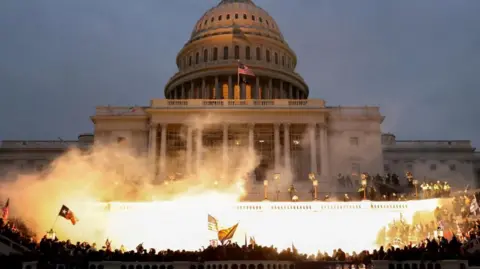 Reuters
Reuters
Until Monday, even some of Donald Trump's team did not seem to believe he would release all of those arrested after riots at the US Capitol on 6 January 2021.
"If you committed violence on that day, obviously you shouldn't be pardoned," Vice-President JD Vance said a little over a week ago.
A few days later, testifying in front of Congress, Trump's nominee for Attorney General Pam Bondi agreed with a Democratic senator who asked her to condemn the violence of that day.
"I do not agree with violence against any police officer," she said, adding that she was willing to look individually at each of the more than 1,500 riot-linked cases.
Trump, however, took a far more sweeping approach to the cases on his first day in office.
He issued a handful of commutations and a blanket pardon that effectively freed all the rioters and erased the work of the largest criminal investigation in US history.
His executive order on Monday gave the rioters and their supporters nearly everything they had been pleading for, short of monetary compensation from the government which some prisoner groups have demanded.
"These people have been destroyed," Trump said after signing the order. "What they've done to these people is outrageous. There's rarely been anything like it in the history of our country."
There were celebratory scenes outside the Washington DC jail where a number of those arrested over the riot have been held, as well as on social media accounts run by the defendants and their supporters.
The mother of Proud Boys leader Enrique Tarrio, who was released on Tuesday, has posted regular updates about her son.
"Our president gave my son and all the J6ers their lives back!" Zuny Tarrio wrote after learning he would walk free from his 22-year sentence. "They can live again! Breathe fresh air again! Feel the sunshine again!"

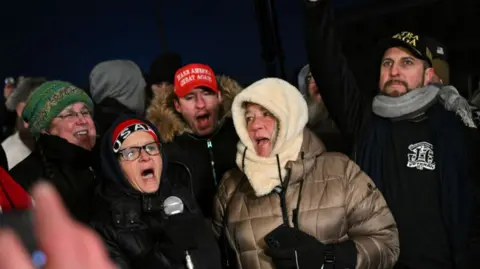 Getty Images
Getty Images
There were celebratory scenes outside the Washington DC jail where many of those arrested over the Capitol riot have been held
One of those released from the Washington DC jail on Tuesday was Rachel Powell from Pennsylvania, who was sentenced to more than four years in jail after smashing a window at the Capitol with an ice axe.
Speaking outside the jail, she told the BBC she would now be home in time for her son's birthday and praised Trump for keeping his promise. "He's a bigger blessing to me than I could ever imagine," she said.
Some observers, including policy experts and lawyers representing rioters, were taken aback by the scale of the president's order.
"The overall consensus was that we would see a differentiation between those who committed violent acts and those who did not," said Lisa Gilbert, co-president of Public Citizen, a progressive not-for-profit group that opposed the pardons.
"Donald Trump ran for office on law and order, so it's shocking and upsetting to see him taking action to pardon violent criminals," she said.
Fourteen people convicted of some of the most serious crimes had their sentences commuted – meaning their offenses will remain on the record, but they will still be released from prison.
The Justice Department, in its last update, said approximately 1,583 people had been arrested or convicted of riot-related crimes.
More than 600 were charged with assaulting, resisting or obstructing police, including around 175 charged with using a weapon or causing serious injury to an officer.
Most of those convicted have served their sentences, or did not receive a jail term at all, but around 250 who are still in prison have started to be released.
And it appears any further investigations – the FBI was still looking for at least 13 suspects and fugitives – will be halted.

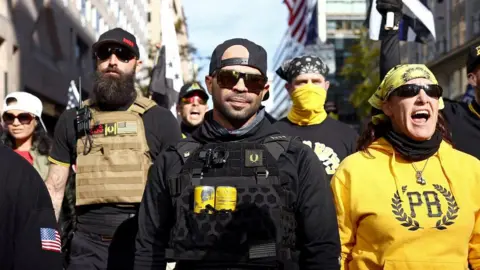 Getty Images
Getty Images
One of those pardoned, Enrique Tarrio (centre), was the leader of the Proud Boys group
Underlining the sweeping finality of his move, Trump named Ed Martin as acting US attorney for Washington DC – the prosecutorial role that has been chiefly responsible for pursuing riot cases.
Martin organised a pro-Trump rally the day before the riot, and has been a staunch critic of the entire investigation.
On the campaign trail, Trump made various statements about the rioters, at times promising blanket pardons but occasionally indicating he might be inclined to keep some of them behind bars.
Supporters of the rioters cheered his blanket pardon on Monday, and have long described the sentences handed out to people they call "J6 hostages" and "political prisoners" as being politically motivated and harsh.
Norm Pattis, a lawyer who defended some of the prisoners, told BBC Newshour that "the notion that somehow this event threatens the republic is overdone", adding that Confederate rebels were pardoned after the Civil War.
"If we could come together as a country after such a violent act, and after people openly took arms and killed one another… why were we still prosecuting people for criminal trespass four years later after an afternoon's riot?" he said.
Polls, however, suggest a blanket pardon including for violent convicts is unpopular. A recent Associated Press survey indicated only two in ten Americans approve of pardoning most of those involved.


Winston Pingeon, a Capitol Police officer who was punched and pepper sprayed that day, told Newshour the pardons were a "slap in the face".
"It's really an unprecedented thing to know that these violent felons who were convicted by a jury of their peers for crimes that were largely broadcast for all the country and the world to see are going to walk free," he said.
In his executive order, Trump explained why he chose to commute the 14 convicts rather than offer them full pardons. The list includes members of the far-right Proud Boys and Oath Keepers militias. Oath Keepers leader Stewart Rhodes was on the list, and was released in the early hours of Tuesday, his lawyer said.
Rhodes, a former US Army paratrooper and Yale-educated lawyer, led the Oath Keepers to Washington in the days before a riot. The group stashed guns in a hotel room across the Potomac River in Virginia, according to trial evidence. Rhodes did not enter the Capitol but directed his members from outside, and was sentenced in 2023 to 18 years in prison.
Rhodes's lawyer, James Lee Bright, told the BBC that even those close to the cases were surprised by the broad nature of the clemency action and the speed of prisoner releases.
"Despite our relationships with people who are close to the president, they were extremely tight-lipped" before the executive order, Bright said.
Watch: Militia leader Stewart Rhodes leaves prison after Trump's 6 January pardons
Tarrio, the former leader of the Proud Boys, received a full pardon, although five other members of his group were on the commutation list. Tarrio was not in the crowd that day, having been banned from the city. Instead, he communicated with fellow Proud Boys from a hotel in nearby Baltimore.
After Rhodes's arrest the Oath Keepers mostly ceased operations, while the Proud Boys focused on local protests, particularly against transgender activists and drag story hours. The latter group was also racked with infighting between established members and splinter groups pushing explicitly white nationalist ideas.
Wendy Via, CEO and co-founder of the Global Project Against Hate and Extremism, said newly released militia members may try to continue their activities, putting far-right groups that largely dissipated back into the spotlight.
On Monday dozens of Proud Boys were seen marching around Washington to celebrate the inauguration.
"Do the Proud Boys start trying to centralise the organisation again, like it was in 2021? That's going to be a big question," Ms Via said.
"The fallout from these pardons is that Trump has sent a message that violence is a viable tool for change, as long as it's on his side," she added.
With additional reporting from Regan Morris and Emma Vardy

 6 hours ago
2
6 hours ago
2
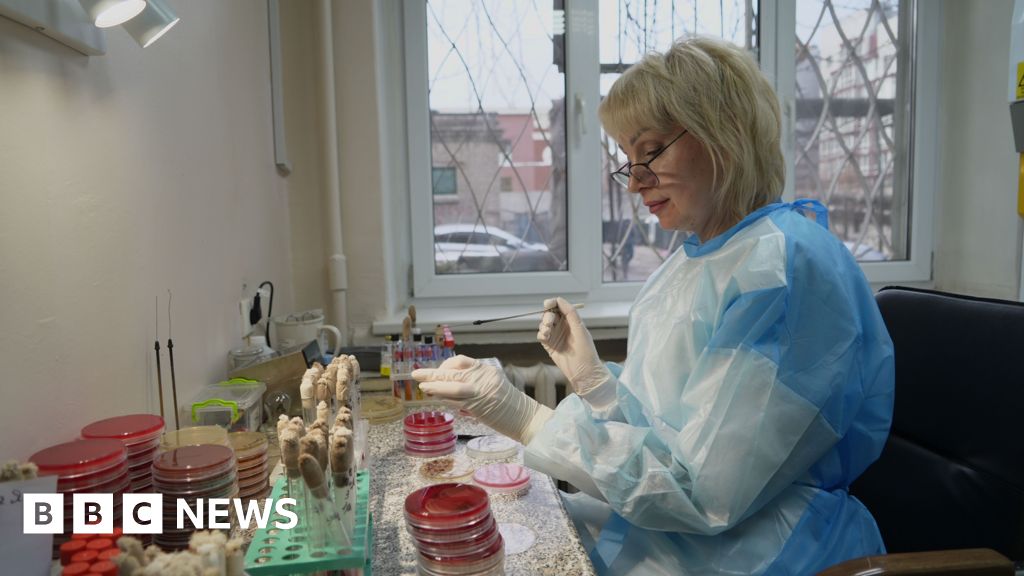
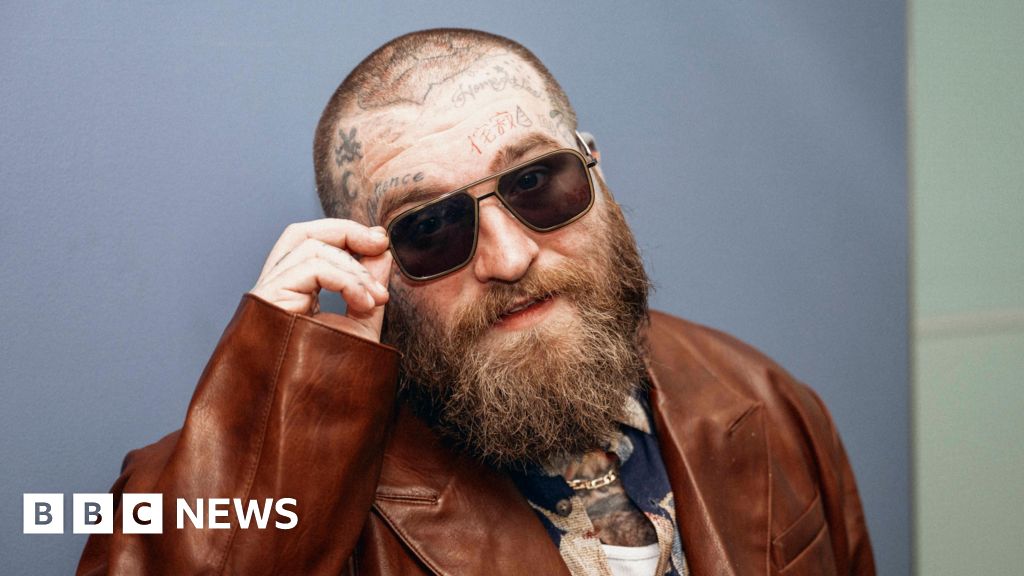
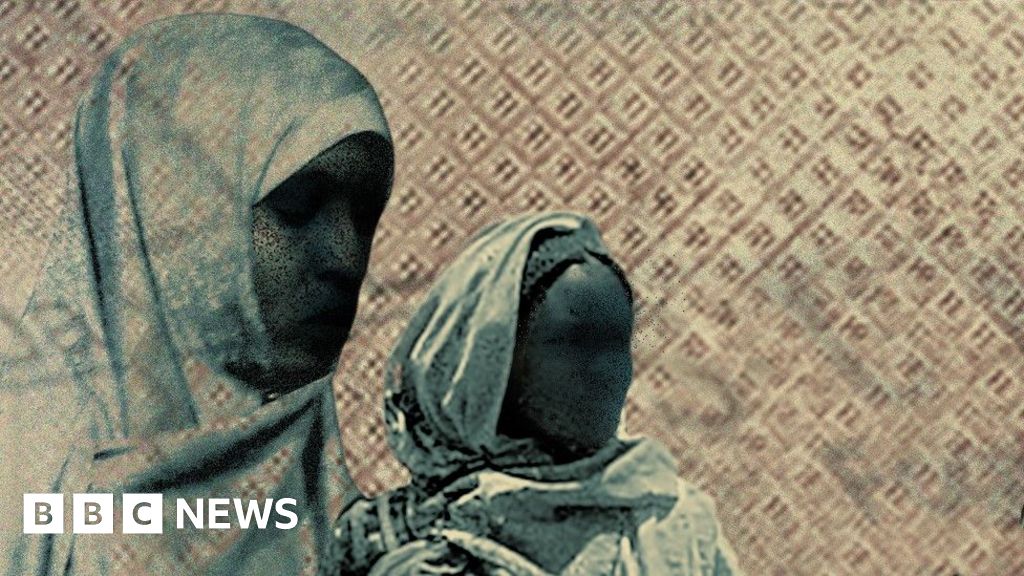





 English (US) ·
English (US) ·